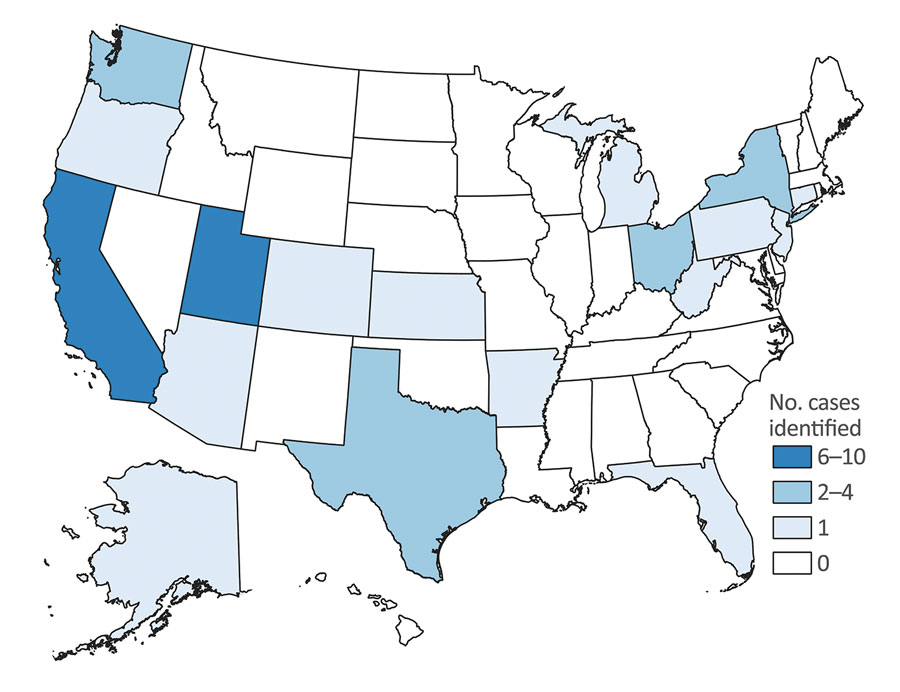Volume 28, Number 1—January 2022
Synopsis
Extensively Drug-Resistant Carbapenemase-Producing Pseudomonas aeruginosa and Medical Tourism from the United States to Mexico, 2018–2019
Figure 1

Figure 1. Confirmed and probable cases of infection with Verona integron‒encoded, metallo-β-lactamase‒producing, carbapenem-resistant Pseudomonas aeruginosa, by state in which bacterium was identified, among US medical tourists undergoing elective invasive procedures in Tijuana, Mexico, January 2018–December 2019. Six suspected cases, from Arizona (n = 1), Georgia (n = 3), Michigan (n = 1), and Washington (n = 1) are not shown.
1These authors contributed equally to this article.
2Members of this team are listed at the end of this article.
Page created: October 28, 2021
Page updated: December 20, 2021
Page reviewed: December 20, 2021
The conclusions, findings, and opinions expressed by authors contributing to this journal do not necessarily reflect the official position of the U.S. Department of Health and Human Services, the Public Health Service, the Centers for Disease Control and Prevention, or the authors' affiliated institutions. Use of trade names is for identification only and does not imply endorsement by any of the groups named above.